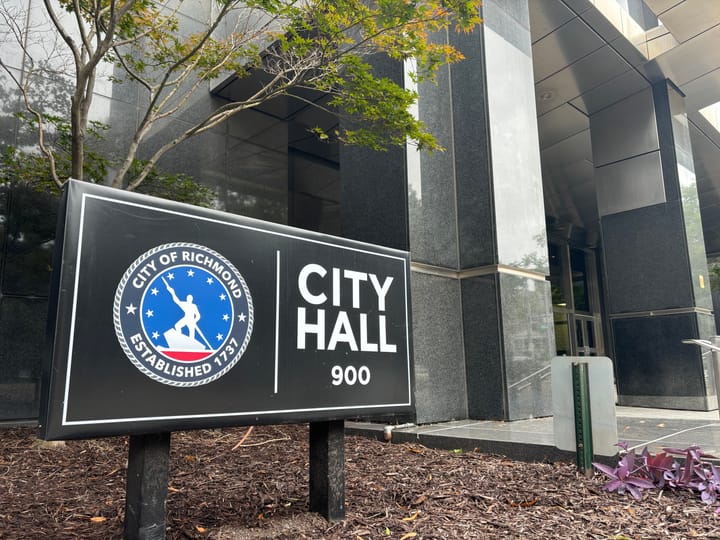
Audit: Richmond Retirement System lost $415K from payments to dead people
The Richmond Retirement System made at least $555,000 in erroneous payments to dozens of former city employees after they had died, according to a new audit report, and the city has been unable to recoup most of the money.
The overpayments to deceased retirees occurred over nine years, and about $415,000 of the total has not been recovered by the city, according to the report released Friday by the office of City Auditor Riad Ali.
One person was paid retirement benefits for seven years before RRS learned they had died in 2015, the report says. That added up to a $247,213 overpayment for a single account.
In total, 44 deceased people were identified as having received improper payments.
The auditor’s office suggested both RRS and the city’s Office of Inspector General take a closer look at the issue to determine whether any of the overpayments constitute fraud.
“Given the volume and age of improper payments, as well as the control weaknesses described in this report, there is an increased risk that fraud occurred,” the audit report says.
The retirement system told the auditor’s office it has since implemented stronger processes and is exploring ways to get the uncollected money. In early 2024, RRS implemented a new system called CertiDeath that reviews over 26,000 obituaries per day to catch deaths not reported by other means.
“The primary reason for Richmond Retirement System (RRS) death-related overpayments relates to a change in privacy laws that has made obtaining death information difficult,” the retirement system management wrote in a response to the audit. “Hence, stopping a pension at death will not always occur in a timely manner.”
In 2023, the city started phasing out RRS and transitioning to the Virginia Retirement System. Employees hired in 2024 or later are not eligible for the former retirement system.
In 2023, 4,400 retirees and beneficiaries received payments from RRS.
The faulty payments happened, according to the report, because the retirement system wasn’t being careful enough with its “death audits” to identify participants who had passed away. The report notes that some payments to recently deceased people are expected in any retirement plan, but the system should be built to flag and prevent continued payments to dead people to avoid financial losses.
“A major risk in any retirement system, including RRS, is making payments to ineligible individuals, such as deceased members,” the report says. “To address this, staff independently review local obituaries to identify unreported deaths. RRS also conducts monthly death audits to detect and prevent benefit payments to deceased members to further mitigate this risk. Additionally, they receive death notifications from funeral homes and family members.”
The Richmonder is powered by your donations. For just $9.99 a month, you can join the 1,000+ donors who are keeping quality local journalism alive in Richmond.
In addition to failing to detect and deactivate deceased retirees, the retirement system “did not take appropriate action to recover overpayments once deceased members were identified,” the report says.
The auditor’s office started examining the retirement system after bonus payments issued in 2022 were “misclassified as non-taxable.”
Management was receptive to the process, the report says.
“RRS management treated these issues seriously and has reported taking corrective actions to address them, including transitioning to an improved death audit process, updating collection procedures, enhancing tracking and oversight and informing the Board of Trustees of the issue,” the report says.
RRS is not a city department and is technically a "quasi-governmental" entity that's part of the legislative branch of city government. It's governed by a seven-member board appointed by the mayor and City Council. The audit found RRS didn’t adequately notify board members of the overpayment issues, “limiting their ability to provide effective governance and policy oversight.”
RRS officials told the auditor the board was not notified sooner because the overpayments were considered an operational issue, not a governance matter.
The audit recommended clarifying oversight responsibilities for the retirement system to better ensure “consistent escalation of significant issues.”
Contact Reporter Graham Moomaw at gmoomaw@richmonder.org






